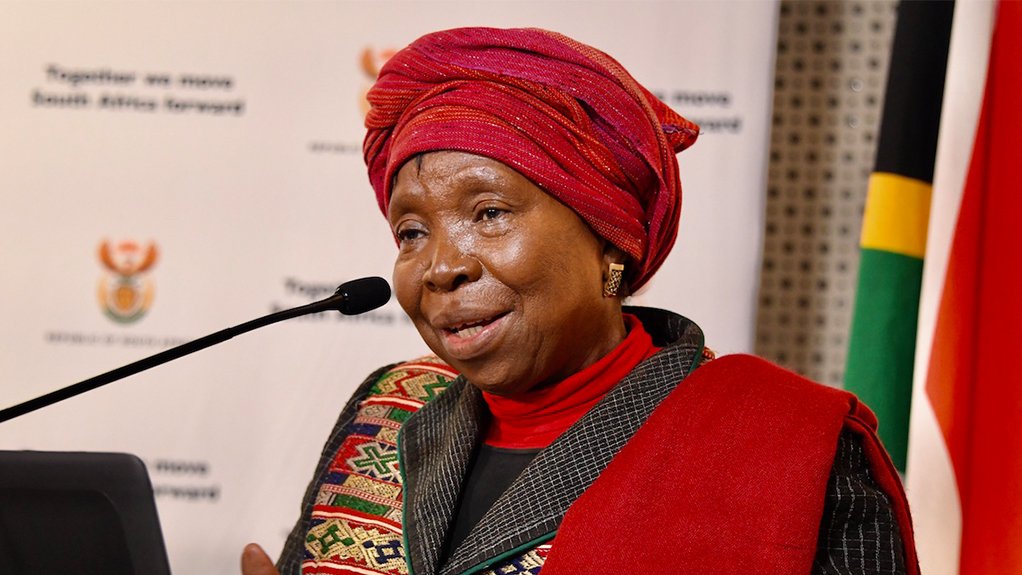The North Gauteng High Court has granted the government partial leave to appeal its earlier ruling last month striking down the country's much-criticised disaster regulations, issued in response to the Covid-19 crisis, which were ruled irrational and unconstitutional.
Judge Norman Davis, who delivered the damning June 2 ruling, found that an appeal on three out of four of the grounds advanced by cooperative governance minister Nkosazana Dlamini-Zuma, in challenging his judgment, had no prospect of success.
He granted her leave to appeal only the wholesale finding of irrationality of most of the state's regulations but denied leave to appeal where he had expressly mentioned specific regulations as clearly irrational.
Davis ordered Dlamini-Zuma to review and redraft these, which include regulations pertaining to funerals.
"The conclusions are that the minister should be granted leave to appeal against the 'blanket' declarations of invalidity but should still be required to review and remedy those identified regulations which displayed clear lack of rationality and constitutional compliance," Davis said.
In his scathing ruling a month ago, Davis found that the minister failed to weigh regulations to ensure that there was a rational connection between the restrictions imposed and the State's aim of seeking to contain a severe health threat to the population.
"In a substantial number of instances [the regulations] are not rationally connected to the objectives of slowing the rate of infection or limiting the spread thereof", the judgment read.
Dlamini-Zuma sought leave to appeal on four grounds.
Firstly, that the applicants had not launched an attack on the constitutionality of the regulations, secondly that the court had strayed beyond the pleadings to pronounce on the legality of level 3 regulations, and thirdly that the 'wholesale' declaration of the regulations as irrational was not justified.
Lastly, her lawyers argued that the court's orders to remedy the situation was too vague.
Davis dismissed all grounds except the third, adding that he had sought clarity from all parties to the case as to whether the court should deal with level 3 lockdown regulations and that the minister's legal team was "the most vehement proponent" urging him to consider these.
"To enable this, I was even urged to delay the judgment until such time as I had the opportunity to peruse and consider the level 3 regulations," he said.
In his judgment, Davis gave Dlamini-Zuma 14 days to review the regulations in line with the rationality test. He revised this, in his response to the application for leave to appeal, to give her a further 10 days to revise those regulations that would fall outside the scope of the appeal.
These were regulations 33(1)(e), 34, 35, 39(2)(m), and the exceptions to regulations 46(1) and 48(2). They pertain to limitations on exercise, the ban on visiting parks and beaches, the prohibition on vigils and prescriptions on family relations at funerals.
The judged conceded that, given the constantly shifting factual landscape, some of these may have become moot because they were overridden by amendments to regulations over the past month. However, since Dlamini-Zuma did not inform the court as to whether these were amended in order to comply with the court directive, the changes would be disregarded.
The regulations were challenged by a little-known group called the Liberty Fighters Network and the judgment prompted cabinet to hold a special meeting where it decided to take it on appeal.
Davis had held that insofar as regulations were not rational, the infringement they represented on freedoms enshrined in the Bill of Rights was not tenable in a democratic society based on human dignity, freedom and equality.
He said the minister's approach appeared to have been that the aim of combating Covid-19 justified any means.
Davis also found that it was problematic that the power to gazette regulations and direct substantial aspects of everyday life "was concentrated in the hands of a single minister".
Davis's ruling on the application for leave to appeal confirms his interpretation of the rationality test. The same test came into play in a legal challenge by the Fair-Trade Independent Tobacco Association (FITA) to the continued ban on the sale of tobacco products imposed by the state as part of its Covid-19 response.
That case was heard by a full bench of the North Gauteng High Court but saw a less stringent interpretation of rationality. FITA lost the case and is expected to appeal.
EMAIL THIS ARTICLE SAVE THIS ARTICLE
To subscribe email subscriptions@creamermedia.co.za or click here
To advertise email advertising@creamermedia.co.za or click here











